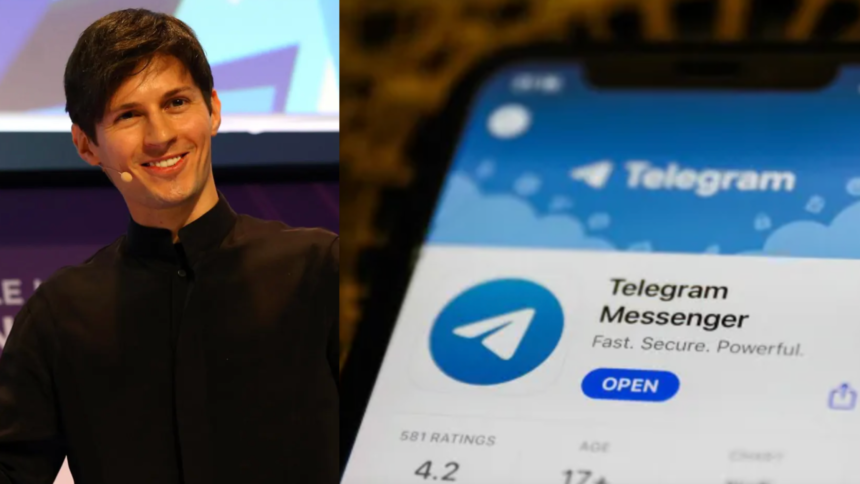The arrest of Telegram’s founder Pavel Durov has sparked widespread debate in the tech and privacy sectors. Known for his dedication to privacy and secure communication, Durov’s detention in France has raised questions about the future of the Telegram platform and the broader implications for encrypted social media. Telegram, one of the most widely used messaging apps, prides itself on allowing users to communicate privately. However, with Durov’s arrest at Paris’ Le Bourget Airport, a new wave of scrutiny has emerged around Telegram’s security protocols and the tension between user privacy and regulatory oversight.
This article dives deep into the reasons behind Durov’s arrest, the concerns about Telegram’s encryption, the reactions from prominent figures, and what this means for the future of encrypted communication.
Why Was Pavel Durov Arrested?
Pavel Durov was reportedly detained by French authorities upon landing in Paris. While the full legal basis for his arrest remains unclear, sources indicate that the investigation is connected to Telegram’s content moderation—or lack thereof. French officials are said to be concerned about the potential misuse of Telegram by criminal organizations, who might use the platform to evade law enforcement. Some reports suggest that authorities may be examining whether the messaging service inadvertently facilitates illegal activities like money laundering, drug trafficking, or the sharing of illicit materials.
Given Telegram’s popularity, especially among those prioritizing privacy, this issue brings up a complex dilemma. While the platform’s encryption and privacy-first design have earned it a loyal user base, they may also make it attractive to those looking to evade surveillance. Critics argue that the absence of robust moderation could inadvertently create a haven for illegal activities, something French authorities are seemingly keen to investigate. The Russian embassy in France has since intervened, requesting access to Durov and seeking clarity on the legal grounds for his detention.
Telegram’s Privacy Features and Ongoing Concerns
Telegram’s appeal largely lies in its reputation for prioritizing user privacy. Founded in 2013, the platform introduced innovative features like self-destructing messages, end-to-end encrypted secret chats, and the option for users to remain anonymous. However, privacy experts have pointed out certain limitations in Telegram’s encryption, particularly when it comes to group chats. Unlike direct, one-on-one secret chats, group conversations and regular messages on Telegram lack end-to-end encryption by default, meaning the company technically has access to them.
Privacy advocacy groups such as GrapheneOS have criticized this, suggesting that Telegram’s “homegrown” encryption is not as secure as it claims to be. They argue that the company could theoretically provide user data to authorities if required, and deleting messages does not necessarily erase them completely from Telegram’s servers. This has prompted questions about how secure Telegram’s privacy features truly are, particularly as Durov now faces increased pressure to comply with government regulations.
Despite the criticisms, Telegram has attracted millions of users globally who value its privacy-centric approach. Durov himself has maintained that he is dedicated to upholding free speech and privacy, arguing that Telegram was created to provide a secure communication platform free from government surveillance. However, if faced with mounting regulatory scrutiny, Telegram might be compelled to reconsider its privacy practices.
Industry and Public Reactions
Durov’s arrest has not only captured the attention of privacy advocates but also of prominent figures in the tech industry. Elon Musk, who owns the social media platform X (formerly Twitter), tweeted his support for Durov, using the hashtag #FreePavel. He linked to a previous interview in which Durov emphasized the importance of privacy and free speech in the digital age. Musk’s stance reflects a growing sentiment among tech leaders concerned about increasing government influence over private communication channels.
Ethereum co-founder Vitalik Buterin also weighed in, expressing concern about the potential consequences of the case. Buterin, who has previously been critical of Telegram’s encryption methods, acknowledged that the case could set a troubling precedent for software and communication freedom in Europe. The case even garnered support from Robert F. Kennedy Jr., an American politician and former presidential candidate, who pointed out the importance of protecting platforms that prioritize privacy.
In addition to industry leaders, Telegram users have rallied around Durov on social media, sharing posts with the hashtag #FreePavel. Many see the detention as a broader assault on privacy and freedom of expression, fueling debate on the extent to which governments should be able to interfere with encrypted communication platforms. Durov’s stance on user privacy, which has long been a point of pride for Telegram’s user base, has taken center stage, prompting widespread discussions about the future of digital privacy.
Impact on Telegram and Free Speech
The arrest of Telegram’s founder could have significant implications for both the platform and the future of encrypted social media. If French authorities press forward with legal actions requiring Telegram to modify its policies, it could impact the privacy features that have become synonymous with the platform. This would also affect millions of users who rely on Telegram for secure and private communication.
Many experts see this as a test case for how far governments are willing to go in regulating encrypted platforms, which often attract scrutiny from law enforcement due to their potential for misuse. If Durov faces charges and Telegram is forced to adjust its moderation practices, it may signal a shift toward stricter regulations for similar platforms. This could limit the freedom of platforms that prioritize end-to-end encryption and decentralized communication.
The stakes are high not only for Telegram but also for other messaging services that operate on similar principles. This arrest serves as a reminder of the delicate balance between user privacy and government oversight, a topic that is sure to remain in the spotlight as more details emerge.
FAQs
1. What are the main reasons behind Pavel Durov’s arrest?
The exact charges remain undisclosed, but French authorities reportedly detained Durov to investigate Telegram’s moderation practices, specifically whether the platform may have inadvertently allowed criminal activities due to insufficient content monitoring.
2. Is Telegram’s encryption really secure?
While Telegram offers end-to-end encryption for secret chats, its group chats and regular one-on-one chats are not end-to-end encrypted by default. Privacy advocates have raised concerns that Telegram’s encryption may not fully protect user data from government access.
3. How did the tech industry react to Durov’s arrest?
Prominent figures like Elon Musk, Vitalik Buterin, and Robert F. Kennedy Jr. have expressed support for Durov and voiced concerns over the potential implications for digital privacy and free speech, sharing solidarity through hashtags like #FreePavel.
4. What could this mean for the future of Telegram?
If forced to adjust its privacy policies, Telegram may have to alter its approach to content moderation, potentially impacting its user base and privacy standards.
5. Will Telegram provide user data to French authorities?
There has been no confirmation from Telegram regarding user data. However, privacy experts warn that group chats and regular chats are accessible to Telegram, which could theoretically provide data if required by law.
6. How does this impact other encrypted platforms?
This case could set a precedent, possibly leading to stricter government regulations for all encrypted platforms, potentially forcing them to comply with new content moderation standards.
7. What does the #FreePavel movement represent?
The #FreePavel movement is a show of support from Telegram users and privacy advocates who view Durov’s arrest as a violation of privacy rights and a threat to encrypted communication.
This expanded article provides a thorough and balanced analysis of the arrest, industry responses, potential impacts on Telegram, and the broader implications for digital privacy. The FAQs address common questions to ensure readers leave with a clear understanding of the situation and its relevance to privacy rights.





